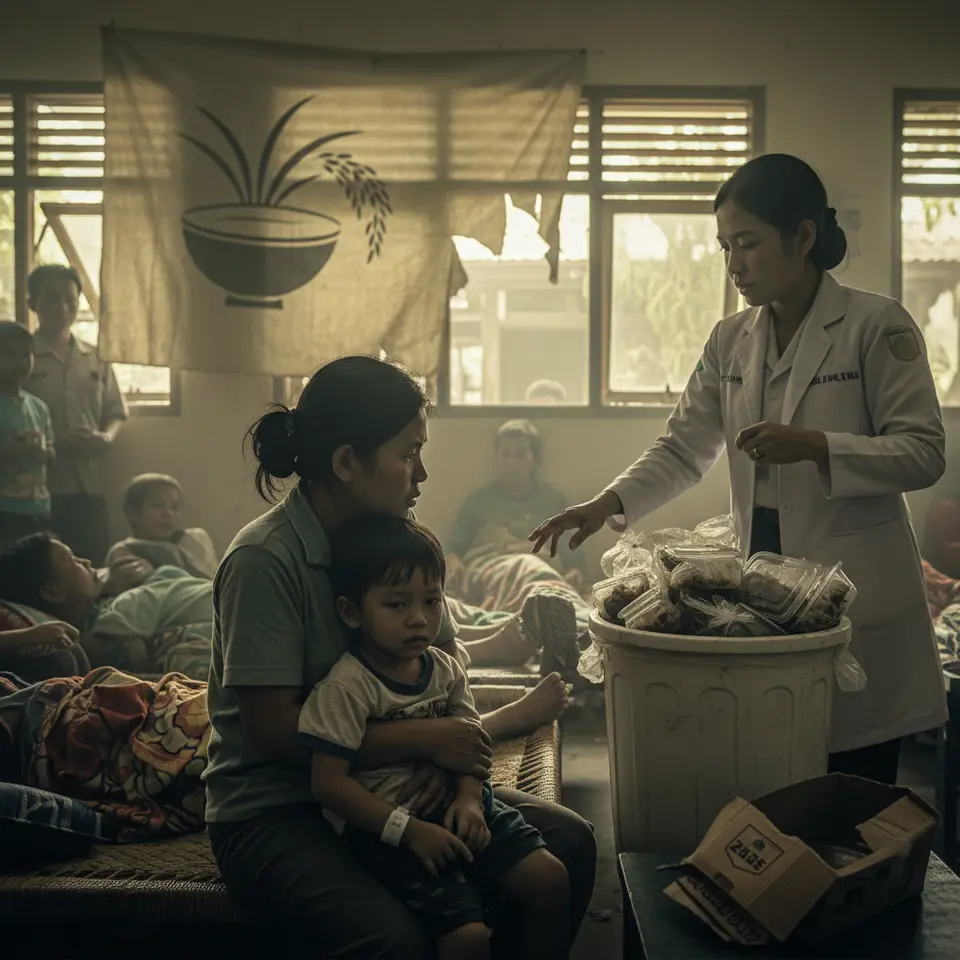
Politicsgovernments & cabinetsPolicy Agendas
Indonesia's Free Meal Plan Linked to Widespread Food Poisoning.
EM
Emma Wilson
5 hours ago7 min read1 comments
The Indonesian government’s flagship free meal program, a billion-dollar cornerstone of President Prabowo Subianto’s administration launched with great fanfare in January to tackle the nation's persistent malnutrition crisis, has been linked to a staggering public health failure, contributing to nearly half of all food poisoning cases reported this year. In a tense parliamentary hearing on Wednesday, Dadan Hindayana, the head of the national agency overseeing the ambitious scheme, delivered the grim statistics to lawmakers, confirming the fears of countless critics who had warned of inadequate hygiene protocols and rushed implementation.Since its inception, thousands of citizens—many of them vulnerable schoolchildren and the elderly who were the program's intended beneficiaries—have fallen violently ill, their bodies wracked by nausea, fever, and dehydration after consuming the very meals meant to nourish and strengthen them. This isn't just a series of isolated incidents; it's a systemic breakdown that echoes tragic precedents in public health history, reminiscent of past food safety scandals that have shaken public trust in governments from China's melamine-tainted milk crisis to more localized outbreaks in underfunded school lunch programs across Southeast Asia.The political fallout is immediate and severe, with opposition figures and civil society groups demanding an immediate suspension of the program, framing it not just as a policy failure but as a profound betrayal of the social contract. For President Prabowo, a former military general who campaigned heavily on this populist initiative, the crisis strikes at the heart of his political brand, threatening to derail his broader agenda and raising urgent questions about the competence of his administration's logistical planning and quality control measures.Experts in public health and nutrition are now sounding the alarm, pointing to the potential long-term consequences: a deepening of public skepticism toward government-led health interventions, a possible resurgence of the very malnutrition the program was designed to combat if parents withdraw their children out of fear, and the immense strain placed on already fragile local healthcare systems suddenly inundated with foodborne illness cases. The situation demands a transparent, independent investigation into the entire supply chain—from the procurement of ingredients to the final preparation and distribution—to identify whether the failures lie with corrupt contractors, insufficient training for food handlers, or a fundamental flaw in the program's design that prioritized scale over safety. As families across the archipelago grapple with the dual burden of sickness and disillusionment, the future of this well-intentioned but catastrophically executed policy hangs in the balance, serving as a stark, painful lesson in the complex, high-stakes challenge of translating political promises into safe, effective public nourishment.
#lead focus news
#Indonesia
#Prabowo Subianto
#free meal program
#food poisoning
#malnutrition
#government policy
#public health
Stay Informed. Act Smarter.
Get weekly highlights, major headlines, and expert insights — then put your knowledge to work in our live prediction markets.
Comments
Loading comments...
© 2025 Outpoll Service LTD. All rights reserved.